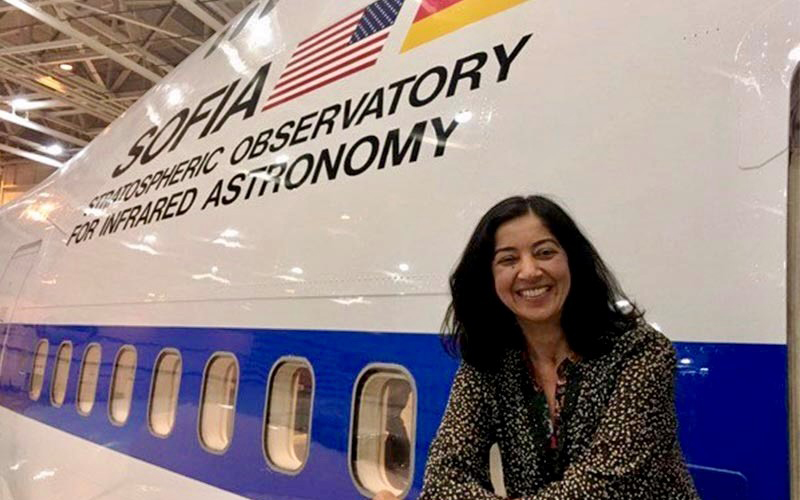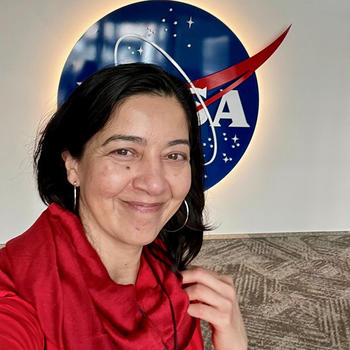In This Story


When you ask Hina Kazmi if she would ever like to live in a colony on the moon, her answer is quick and enthusiastic.
“Oh, I would absolutely do that,” she said. “Do they need a tester for the first flight to Mars? I would do that too.”
It’s not a farfetched question to ask Kazmi. The Schar School of Policy and Government at George Mason University adjunct professor is set to teach a new course, Introduction to Space Policy, beginning in August with the start of the 2025 fall semester. It’s one of the rare courses in the country that will bring the growing fields related to space exploration—and exploitation—into the classroom.
The course is designed to support a broad range of public policy interests, Kazmi said. Those interested in international and national security, engineering, business, public administration, and other topics will find the course useful in their academic pursuits and future careers.
“When you think of space,” she said, “you think of commercial startups and Jeff Bezos and Elon Musk launching their rockets. That’s the fun stuff. But beyond that excitement there are huge national, international, and commercial aspects to this industry.”
As more of the business of space falls into in private hands, there comes a need for clear, informed, and educated thinking on public policy, she said.
“In the past, [space activity] was government controlled, but now it’s commercially available for navigation, weather prediction, communications. We’re expanding our access to space, and it has become critical infrastructure—but what does that mean policywise?”
As an example of the field’s growth, the tiny island of Bahrain, where the Pakistan native spent her middle school years, has a space agency. “Every country now sees this as important,” she said.
Kazmi, an engineer by training who at one point was leading programs for NASA, developed a fascination for space in 1980, when the interstellar craft Voyager 1 sent its first images of Saturn back to Earth from some 800 million miles away. The astronomical event made an impression on the young scholar.
“I knew I was going into aerospace,” she said.
Kazmi earned her undergraduate degree in aerospace engineering, with a minor in mathematics, in 1993 from Embry-Riddle Aeronautical University in Prescott, Arizona.
She also holds a master of business administration degree. After rising through the ranks in technical and management roles at major private and public aerospace leaders, she began teaching at George Mason, revitalizing a dormant course in managing government contracting.
Realizing her future was in academia, she earned a master of public policy degree from the Schar School in 2008, followed by a PhD in public policy in 2016. She received the Joseph A. Fischer Award for best PhD dissertation.
“I really believe Gen Z, who is in college now, and Gen Alpha behind them will be the space generations,” she said. “Space tourism, living in space, working in space, moon colonies—all of that is happening. We’re in the very, very early stages of it.”
